Residency preceptors
PGY-1 preceptors

Jennifer Locker, PharmD, BCPS
Title: PGY-1 Residency Program Director, Manager, Clinical Pharmacy Services
Education: Pharm.D., Purdue University, 2001
Training: PGY-1, Advocate Lutheran General Hospital, 2002
Practice Area: Administration
Email: jennifer.locker@aah.org
Year Long Project Learning Experience:A key role of clinical health-system pharmacists includes the development, design, implementation, evaluation, and presentation of research and/or quality improvement projects. To best prepare the pharmacy resident for these activities, a longitudinal year long project component is integrated into this PGY1 residency program.
Project ideas are submitted to the AAH Pharmacy Research Project Advisory Board (RPAB) in the spring preceding the incoming residency class. After thorough review and consideration, the RPAB approves project ideas that are deemed feasible to complete within the residency year and add value to the organization. Of those, several are assigned to the LGH PGY1 Residency Program. PGY1 residents work with the RPD to align projects based on residents areas of interests when possible and projects are assigned accordingly. The resident will work with one primary project mentor however, may have additional preceptors based on the scope of the project. Following completion of the project, the resident produces a manuscript suitable for publication. Residents present their year long project at a major conference, typically the IL Pharmacy Resident Conference, held annually in the spring.
Practice Management/Administration Learning Experience: This learning experience introduces the resident to various practice management topics such as principles of the pharmacy budget, purchasing and inventory control, quality improvement, leadership, management, staff development, and human resources. The director of pharmacy and managers lead bi-monthly topic discussions to facilitate learning. Residents also spend 1 week with the clinical manager to complete administrative projects as assigned.
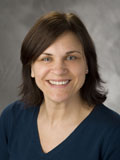
Debby Bryniarski, PharmD
Title: Director of Pharmacy & Respiratory Services
Education: Pharm.D., University of Illinois at Chicago, 1989
Training: PGY-1, Advocate Lutheran General Hospital, 1990
Practice Area: Administration
Email: debby.bryniarski@aah.org

Tricia Bubacz, PharmD, BCPS
Title: PGY-1 Residency Coordinator, Clinical Pharmacist II
Education: Pharm.D., University of Wisconsin - Madison, 2001
Practice Area: Orientation, Staffing
Email: tricia.bubacz@aah.org
Orientation learning experience description: This learning experience orients the resident to the distributive processes within the pharmacy, electronic medical record (EMR), order verification, medication related policies and procedures, and clinical services provided by the department including pharmacy to dose protocols.
Staffing Learning Experience: Residents staff every third weekend 8-hour shifts, one 4-hour weekday PM shift per week (one week off every six weeks), and one or two of seven holidays throughout the year. Weekend shifts may be day, midday, or evening shifts. This learning experience is designed to allow the resident to become familiar with the preparation and distributive process within the pharmacy along with clinical services provided by the department. This includes learning the electronic order verification process, navigating the electronic medical record (EMR), managing pharmacy-to-dose protocols, participating in the medication reconciliation process, and providing drug information to healthcare professionals as needed to optimize medication therapy.
Typically, residents cover general medicine, cardiology, rehab and surgical units during their shifts. As the year progresses, the resident’s comfort level increases and the resident is able to demonstrate competency, there may be the opportunity to train and staff in specialty areas such as the emergency department, critical care, pediatrics and oncology.
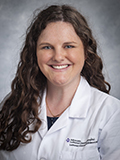
Jill Argotsinger, PharmD, BCIDP
Title: PGY2 Infectious Diseases Residency Program Director; Clinical Pharmacy Specialist, Infectious Diseases; Advocate Lutheran General Hospital
Education: PharmD, Butler University, 2018
Training: PGY-1, Conemaugh Memorial Medical Center, Johnstown, PA, 2018 - 2019; PGY2 Infectious Diseases, Advocate Lutheran General Hospital, Park Ridge, 2019 – 2020
Practice Area: Infectious Diseases, Antimicrobial Stewardship
Research Interests: Multi-drug resistant gram-negative infections, Pharmacokinetics/pharmacodynamics of antimicrobials, antimicrobial stewardship and resistance
Email: jill.argotsinger@aah.org
Infectious Disease Learning Experience Description: The Infectious Diseases (ID) learning experience is designed for pharmacy residents to expand their ID knowledge and apply clinical and problem-solving skills necessary to assess, evaluate, and develop empiric pharmaceutical care plans, and provide antimicrobial stewardship recommendations for patients with suspected or documented infectious disease states to the multidisciplinary infectious diseases team in order to optimize a patient’s antimicrobial regimen. Based on the resident’s interest, the learning experience may be split between rounding with the adult/pediatric infectious diseases consult services and antimicrobial stewardship.
The resident is expected to lead and actively participate in topic discussions to develop knowledge of disease states with which the resident may not be familiar with and/or to increase depth of knowledge of pathophysiology, drug therapy or clinical guidelines. In addition to the required learning activities, the resident may be expected to attend and participate in interdisciplinary conferences/meetings (Antimicrobial Stewardship, Infection Prevention, etc.).

Elizabeth Bisaccia, PharmD, BCPPS
Title: Clinical Pharmacy Specialist, Investigational Drug Services
Education: Pharm.D. University of Illinois at Chicago 2012
Training: PGY-1 NorthShore University HealthSystem 2013, PGY-2 Pediatrics Advent Health for Children 2014
Practice Area: Investigational Drug Services
Research Interests: Pediatric clinical trials, pediatric oncology and the Children’s Oncology Group, optimization of the electronic health record for investigational dispensing
Email: elizabeth.bisaccia@aah.org
Investigational Drug Service Learning Experience: Residents develop an understanding of the role and responsibilities of the institutional review boards, gain experience reviewing research proposals, and coordinate pharmacy-related activities pertaining to active studies. Residents actively engage in performing duties related to active clinical trials including attending protocol review meetings, IRB meetings and other study team meetings as appropriate. Punctuality, integrity and an understanding of confidentiality of proprietary property are required.

Krista Carlson, PharmD, ACRP-CP
Title: Clinical Pharmacy Specialist, Investigational Drug Services
Education: Pharm.D., Drake University 2005
Training: PGY-1 Mercy Medical Center North Iowa 2006
Practice Area: Investigational Drug Services
Research Interests: Clinical trials, oncology trials, neurology trials
Email: krista.carlson@aah.org
Investigational Drug Service Learning Experience: Residents develop an understanding of the role and responsibilities of the institutional review boards, gain experience reviewing research proposals, and coordinate pharmacy-related activities pertaining to active studies. Residents actively engage in performing duties related to active clinical trials including attending protocol review meetings, IRB meetings and other study team meetings as appropriate. Punctuality, integrity and an understanding of confidentiality of proprietary property are required.

Karen Caylor, PharmD, BCPS
Title: Clinical Pharmacy Specialist, Pediatric Critical Care
Education: Pharm.D., University of Illinois at Chicago, 2007
Training: PGY-1, Advocate Lutheran General Hospital, 2008; PGY-2 Pediatrics, University of Illinois at Chicago, 2009
Practice Area: Pediatric Intensive Care Unit
Research Interests: Sedation, opioid/benzodiazepine/dexmedetomidine withdrawal in children
Email: karen.chincaylor@aah.org
Pediatric Intensive Care Learning Experience: The pediatric intensive care unit (PICU) learning experience focuses on the provision of pharmaceutical care services to the pediatric population. The PICU is a 19- bed unit that encompasses patients ranging in age from newborns to adolescents. The patient population includes traumas, post-operative cases, and general medical issues. Residents participate in daily rounds with an interdisciplinary team, of which responsibilities include review of patient profiles, provision of drug information, development of evidence based therapeutic plans, and development of short and long-term monitoring plans.
Residents also assist with pharmacokinetic monitoring, providing parenteral nutrition support, and participating in pediatric emergencies. Residents participate in one to two topic discussions each week. Topics include but are not limited to septic shock, traumatic brain injury, seizures, diabetic ketoacidosis, pressors/neuromuscular blockers, pulmonary hypertension, continuous renal replacement therapy, and extracorporeal membranous oxygenation. Residents provide education through in-services and formal presentations to the pharmacy staff, physicians, and nurses.
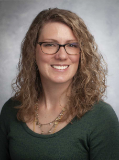
Jennifer Dodda, PharmD, BCPS
Title: Clinical Pharmacy Specialist, Medication Safety and Formulary Management
Education: PharmD, Creighton University 2011
Training: PGY-1, SSM Health St. Mary's Hospital- Madison, 2012
Practice Area: Medication Safety
Research Interests: Medication Safety
Email: jennifer.Dodda@aah.org
Medication Safety Learning Experience: This learning experience introduces the resident to drug information, medication use evaluation, medication safety, drug shortage management, and medical informatics. The resident will further develop their skills in medical writing, literature evaluation/statistics, medication error prevention, and practice-based education and training. Active participation in various committees will occur, such as: Pharmacy & Therapeutics, Medication Safety, Advocate Clinical Pharmacy Council, and others. The resident may have the opportunity to assist with precepting and serve as a role model for student(s) during the learning experience.

Amish Doshi, PharmD, BCCCP
Title: Clinical Pharmacy Specialist, Surgical Intensive Care
Education: Pharm.D., St. Louis College of Pharmacy, 1997
Training: PGY-1, Advocate Lutheran General Hospital, 2003
Practice Area: Surgical Intensive Care
Research Interests: Traumatic brain injury, and sedation and analgesia in critically injured patients
Email: amish.doshi@aah.org
Surgical Intensive Care Learning Experience: The Surgical Intensive Care Unit (SICU) is a 14 bed closed unit which is comprised primarily of trauma, cardiovascular surgery, neurosurgery, orthopedic, and general surgery patients. Lutheran General Hospital serves as a site for surgical resident training. Residents choosing to rotate through the SICU would participate in multidisciplinary trauma rounds providing recommendations on medication therapy and monitoring as well as reviewing medication therapy for non-trauma patients. Opportunities to provide informal pharmacotherapy education during rounds and formal lectures during noon conference or morning report to our surgical residents may be available. Attendance at various committee meetings throughout the hospital is required.

Paul Drahos, Pharm.D., BCPS
Title: Clinical Pharmacist III
Education: University of Illinois at Chicago
Training: PGY1, Edward Hines, Jr. VA Medical Center
Practice Area: Pharmacy Integrated Clinical Services (PICS)
Email: paul.drahos@aah.org
Pharmacy Integrated Clinical Services Learning Experience: Pharmacy Integrated Clinical Services (PICS) is a required, three-week learning experience. The resident will be responsible for the timely review and verification of medication orders with the goal of attaining the ability to practice as an independent clinical pharmacist by ensuring medication orders are safe, appropriate, and complete prior to verification. All order verification will adhere to AAH’s established Standards of Practice. The rotation takes place at AAH’s primary Pharmacy Integrated Clinical Services (PICS) hub in IL located at the Integrated Services Center in Arlington Heights. This experience is offered to supplement the staffing learning experience given 90% of order verification is completed by the PICS team.

Amina George, PharmD, BCCCP
Title: PGY-2 Critical Care Residency Coordinator; Clinical Pharmacy Specialist, Neurocritical Care and Operating Room
Education: Pharm.D., University of Illinois at Chicago, 2008
Training: PGY-1, Advocate Lutheran General Hospital, 2009
Practice Area: Neurocritical Care Unit
Research Interests: Stroke, Traumatic Brain Injury
Email: amina.george@aah.org
Neurocritical Care Unit Learning Experience: The Neurocritical Care Unit (NCCU) is a 9 bed ICU that specializes in the care of patients with various pathologic neurologic conditions including, but not limited to, stroke, isolated traumatic brain injury, and status epilepticus. The NCCU is managed by Neurointensivists and Advanced Practice Nurses. The learning experience is designed for pharmacy residents to identify and develop the skills, knowledge, and values necessary to practice in an intensive care setting, with an emphasis on neurologic disease state management. Residents participate in multidisciplinary bedside rounds with an attending physician, APNs, nursing staff, clinical pharmacist, respiratory therapist, and medical residents and students. This team meets daily to discuss and optimize patient care.
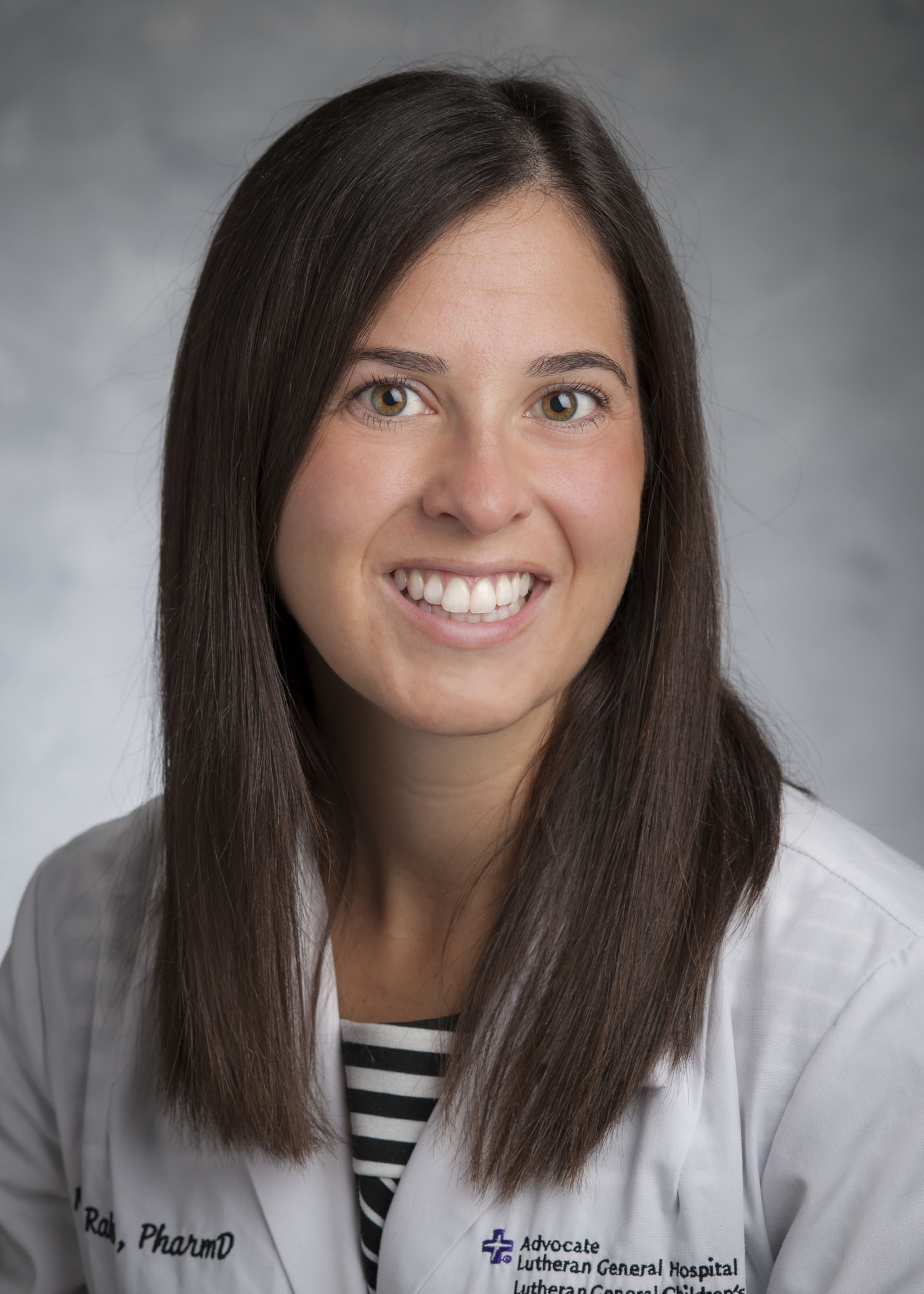
Nicole Gockenbach, PharmD, BCPPS
Title: PGY-2 Pediatric Residency Director, Clinical Pharmacy Specialist, Pediatric Hematology-Oncology
Education: Pharm.D., University of Iowa, 2012
Training: PGY1, Advocate Lutheran General Hospital, 2013; PGY2 Pediatrics, OSF St. Francis Medical Center – Children’s Hospital of Illinois, 2014
Practice Area: Pediatric Hematology Oncology
Research Interests: Prevention and management of chemotherapy-induced toxicities, medication education, drug level monitoring
Email: nicole.gockenbach@aah.org
Pediatric Hematology/Oncology Learning Experience: The learning experience allows the resident to build upon information acquired in the resident's didactic education and practice skills needed for patient care, with emphasis on demonstrating an understanding of common hematologic and oncologic diagnoses and treatment. Common diagnoses consist of, but are not limited to: leukemia, lymphoma, retinoblastoma, neuroblastoma, sarcoma, brain tumors, neutropenia, thrombocytopenia, and anemia. The resident participates in daily bedside rounds and develop patient-specific, evidence-based therapeutic plans. In addition, the resident presents 1-3 topic discussions weekly and provides education to patients/families, and through in-services or formal presentations to pharmacists, physicians, and nurses.
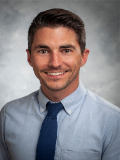
Tyler Golembiewski, PharmD, BCPPS
Title: Clinical Pharmacist, Pediatrics
Education: Pharm.D., Midwestern University, 2013
Training: PGY-1, Children's Minnesota, 2016
Practice Area: General Pediatrics
Email: Tyler.Golembiewski@aah.org
General Pediatrics Learning Experience: The activities of the experience allow the resident to build upon information acquired in their didactic education and practice skills needed for patient care, with emphasis on demonstrating an understanding of common acute and chronic medical illnesses in pediatrics and treatment of these conditions, assessing appropriateness of medications used, and demonstrating knowledge of mechanism of action, pharmacokinetics, pharmacodynamics, contraindications, interactions, and adverse reactions of medications commonly used in pediatrics.
The general pediatric units consist of 40+ beds. Resident responsibilities include participating in daily rounds, assisting physicians in drug selection, dosing, and monitoring, documenting medication errors, updating medication guidelines as needed, providing medication counseling and education to patients and family members and teaching resident physicians, nurses, and pharmacists.

Jason Groch, PharmD, BCPS, BCSCP
Title: Clinical Pharmacist III, Sterile Compounding Lead
Education: Pharm.D., Midwestern University, 2012
Practice Area: Sterile products
Email: Jason.Groch@aah.org
Sterile Compounding Learning Experience: The sterile compounding 2-week required learning experience provides the resident with an understanding of key concepts including aseptic technique, clean room operations, team management and regulatory requirements. The learning experience also provides the resident with a detailed background on the handling and management of hazardous drugs within the healthcare setting. The resident will spend time evaluating and adjusting workflows to improve safety, quality and efficiency of compounding operations. Across the experience, the resident will learn to interpret and apply United States Pharmacopeia 797 and 800 guidelines that provide foundational information for clean room operations.
The resident will collaborate with pharmacists, pharmacy technicians, nurses and medical staff to resolve operational challenges to ensure safe and accurate medication compounding and delivery. An elective rotation will further build upon these concepts for those residents who elect to spend more time on this learning experience.

Noreen Kelly, PharmD, BCPS
Title: Clinical Pharmacy Specialist, Medical Surgery/Pain Management
Education: Pharm.D., University of Illinois at Chicago, 2004
Training: PGY-1, Advocate Lutheran General Hospital, 2005
Practice Area: Medical Surgery/Pain Management
Research Interests: Prophylaxis of venous thromboembolism, inpatient diabetes management, and non opioid medication therapies in the management of acute and chronic pain
Email: noreen.kelly@aah.org
General Medicine Learning Experience: The resident serves as a resource to healthcare providers as a drug information specialist. The resident learns to articulate recommendations confidently and tactfully verbally communicating important information in an organized, clear, concise, and timely manner. Daily responsibilities include the initial development and subsequent reassessment of a complete problem list and therapeutic plan. Medication use evaluations (MUEs) may be performed and presented to the appropriate audience for implementation of the prescribed changes within the organization. In addition, the resident conducts medication histories and performs medication discharge counseling. Residents submit medication safety and adverse drug event reports as appropriate.
Advanced Medicine Learning Experience: The resident will expand on knowledge and skills learned during their required core internal medicine learning experience. Primary clinical responsibilities include rounding with assigned teams, verifying medication orders, performing pharmacokinetic monitoring, as well as designing, recommending, monitoring and evaluating patient-specific therapeutic regimens that incorporate the principles of evidence-based medicine. The resident is responsible for all medication management activities for their service including transitions between different locations or levels of care including facilitating safe and effective discharges for patients deemed to be at high risk for readmission. The resident provides education to patients, caregivers, providers and other members of the multidisciplinary health care team as needed. The resident may have the opportunity to assist with precepting and serve as a role model for student(s) during the learning experience.
Pain Management Learning Experience: The learning experience is designed to provide the pharmacy resident with a broad training experience in the management of pain modalities. The pharmacy resident works directly with the preceptor to provide acute pharmaceutical care to inpatients admitted for diverse and complex medical management. Topics discussed may include: spinal stenosis, spondylitis, spondylolisthesis, disc herniation, failed back syndrome, abdominal pain, costochondritis, migraine, PONV, and neuropathy.
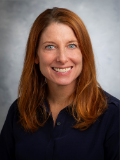
Kelly Kopec, PharmD, BCPPS
Title: Clinical Pharmacy Specialist, Pediatrics
Education: Pharm.D., University of Illinois at Chicago, 1994
Training: PGY-1, University of Illinois at Chicago, 1995
Practice Area: Neonatal Intensive Care Unit
Research Interests: Neonatal nutrition; optimization and adverse effects, neonatal infectious disease, neonatal pharmacokinetics
Email: kelly.kopec@aah.org
Neonatal Intensive Care Learning Experience: The neonatal intensive care unit (NICU) is a level III nursery with ECMO capability and an average daily census of 35 – 40 infants. The resident participates on rounds with a multidisciplinary team consisting of physicians, medical residents and fellows, nurses and pharmacists. During rounds the pharmacist is responsible for checking all medication orders for accuracy based on the patient’s weight, gestational age, disease state, and lab results. The resident develops evidence based therapeutic plans and ensures that appropriate short and long-term monitoring parameters are followed. Other responsibilities include responding to drug information requests, evaluating medication usage, participating in performance improvement initiatives, responding to Code Blue situations, and development of treatment pathways, educating physicians, nurses and patients as needed.
Several topics are covered during the learning experience including: developmental pharmacokinetics, osteopenia of prematurity, infectious diseases in the NICU, pain management, respiratory distress syndrome and BPD, seizures, treatment of PDA, surfactants, neonatal nutrition support, prevention of RSV, apnea of prematurity, retinopathy of prematurity, causes and prevention of IVH, ECMO, necrotizing enterocolitis, prenatal HIV exposure.
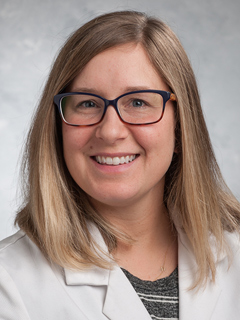
Libby Kuhr-Bailey, PharmD, BCACP
Title: Anticoagulation Clinical Pharmacist
Education: PharmD 2008, Drake University
Training: PGY-1 Community Pharmacy Practice Resident, University of Wisconsin Hospital and Clinics 2010
Practice Area: Outpatient/Inpatient Anticoagulation
Email: Elizabeth.Kuhr@aah.org
Outpatient Anticoagulation Clinic Learning Experience: This learning experience allows the resident to apply didactic knowledge to develop practice skills needed for appropriate anticoagulation selection, monitoring and treatment. Emphasis is placed on enhancing the resident’s understanding of diseases requiring chronic and acute anticoagulation. Residents demonstrate knowledge of the mechanism of action, pharmacokinetics, pharmacodynamics, contraindications, interactions and adverse reactions associated with anticoagulants, focusing on warfarin. Residents follow patients for several weeks to monitor response to therapy and adjust warfarin doses as needed to maintain INRs in therapeutic range. By working with a designated group of patients and pharmacists, residents further develop their communication and patient education skills.

Jill Starykowicz, PharmD, BCCCP
Title: PGY-2 Critical Care Residency Program Director; Clinical Pharmacy Specialist, Medical and Cardiac Intensive Care
Education: Pharm.D., University of Illinois at Chicago, 2006
Training: PGY-1, University of Illinois at Chicago, 2007; PGY-2 Cardiology, University of Massachusetts Medical Center, 2009
Practice Area: Medical and Cardiac Intensive Care Unit (MCICU)
Research Interests: Delirium in the critically ill, targeted temperature management, invasive cardiac monitoring and anticoagulation
Email: jill.starykowicz@aah.org
Medical/Cardiac Intensive Care Learning Experience: The MCICU and Interventional Unit consists of a 32-bed unit with 10 beds devoted to cardiology and the remaining dedicated to the medical intensive care service. The learning experience is designed for pharmacy residents to develop the skills, knowledge, and values expected by a clinical pharmacy specialist practicing in critical care medicine and tailored to the resident’s previous critical care experience.
Residents participate in multidisciplinary bedside rounds with an attending physician, medical residents and interns, nurses, clinical pharmacist, and respiratory therapy. This team meets daily to discuss and optimize patient care. In addition to working bedside rounds, teaching rounds occur daily to cover critical care topic discussions and issues related to patients in the unit.
